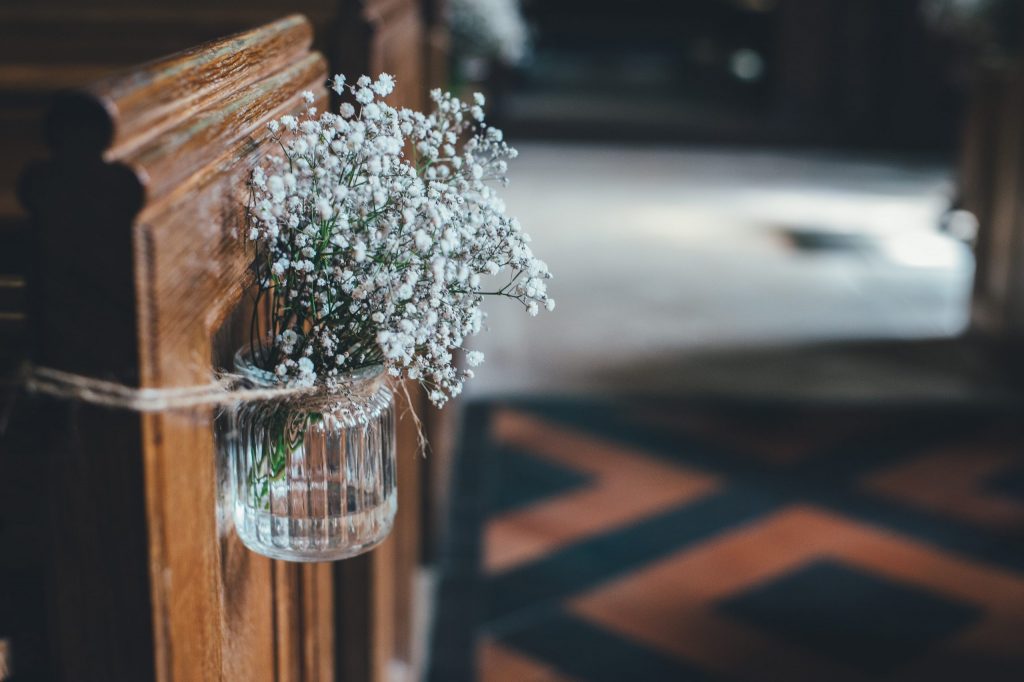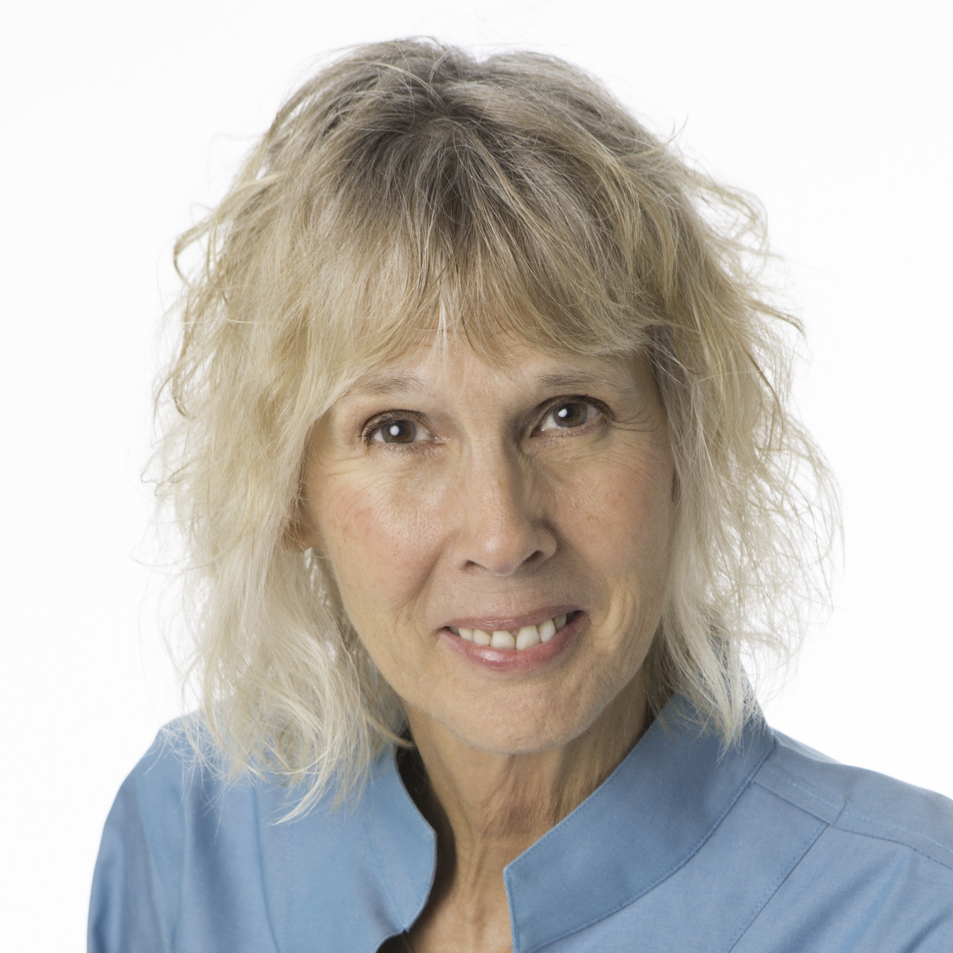
by Dr. Pia Orleane
Many wise people, including my beloved husband, Cullen Baird Smith, have told me that we cannot truly be who we are until our parents are gone.
Cullen's own parents died when he was quite young, so he had a very personal experience from which to draw that conclusion. My most important teacher, Emilie Conrad, phrased it another way, saying, "We come in on the breath of the mother. When the mother leaves, we have to learn how to breathe on our own."
While I comprehended the concept these two wise people explained to me, it was not until I lived it that I truly understood. When someone's mother dies, whether the relationship was a good one or a poor one has little bearing on the specific emotions that we experience. We can be angry that we lost someone important to us; we can be angry at being left alone; we can grieve what we lost or we can grieve what we never had but wished for; we can be frustrated because just when we became accustomed to a particular rhythm in our lives, a key person of importance has gone. Grief, anger, frustration are all emotions that surface when we lose our mothers; we may even experience a sense of being lost.
But just because we grieve does not mean that we are wishing we could retain things as they were. Many, many people have or have had dysfunctional relationships with their mothers, disguised as love or failed attempts at acceptance. I know this because I listened to thousands of people describing these relationships with their mothers in my psychology practice. Many people believe they must endure elements of control, neglect, abuse, or even unwanted interference from their mothers in order to receive love. Often people will push down their feelings and thoughts about the relationship with their mothers because they believe they themselves are not being loving if they even acknowledge the obvious problems within the relationship.
"So often when we grieve the passing of a parent, we are grieving the part of ourselves that we did not allow to live during the relationship."
Mothers are sacrosanct. Because a mother's love is supposed to be unconditional–although many mothers never achieve this–we are afraid to acknowledge that our particular relationship with our mother may not fit into the fairy-tale description of a mother's love. If we don't have that unconditional love, it makes us question what's wrong with us. I never had a client come into my office who asked what was wrong with her or his mother. They always came asking what was wrong with them themselves to be treated however they were they being treated.
I'm not saying all maternal relationships are dysfunctional. Many mothers do a truly excellent job at providing appropriate guidance and unconditional love. But I am saying that because we have been taught to honor our mothers no matter what, we often do not clearly see how we may need to speak up or act differently when our mothers try to direct our lives the way they did when we were children. In other words, we don't really grow up. Regardless of the reality of the relationship, good or bad, we continue to play the role of a child under the mother's influence. And so, when we find ourselves without our mothers, we may truly feel lost ourselves, not knowing who we are as adults.
Society has trained us to believe that family comes first. And if the father is considered to be the head of the family, the mother is the heart of the home. This training stems from years of survival, when our ancestors had to stick together or die. These days, we often choose to stick together with our families, following the old survival protocol, even when it is obvious that the relationship is unbalanced or even toxic. We may deny the truth of a dysfunctional situation or disregard our own wants and needs far past the time that we were innocent children. When we do that, we are dying ourselves, a little bit at a time. We do not let ourselves be "who we really are" in the presence of our parents, and most likely, we do not know who we are.
So often when we grieve the passing of a parent, we are grieving the part of ourselves that we did not allow to live during the relationship. Perhaps we were afraid of not being loved if we were our true selves, or we were putting someone else first rather than tending to our own needs. When our mother dies, we begin to question who we have been and who we are becoming. If we do not define ourselves through the lens our mother has seen us, then who are we?

It has been a year since my own mother transitioned. In that year I can honestly say there were lots of times I did not recognize who I was any more, and that was not always a pretty picture. We tend to want to see ourselves in the best light, hiding from the ugly or nasty emotions that we keep hidden away in the dark. But as a psychologist I can tell you that anything that is repressed or hidden away will make itself known, often in the form of screaming and yelling. I found myself angry a lot in the last year; I didn't really want to be around other people very much. The world seemed a darker place, but I didn't really understand that much of the darkness was coming from my own attitude. The anger I had stored all of my life in order to be "nice," in order to "fit in and be accepted," in order to put family first (regardless of my own needs), in order to be that good daughter broke free and went on a rampage against anything or anyone who discouraged, discounted, or dismissed me.
The ceremony I privately held for my mother's passing, by a pretty little creek in the woods–just the kind of place she would have loved–was not what I expected it to be. I went there to grieve by myself, and to honor the life and the love my mother had given me. After I silently thanked her for what we had shared, told her I loved her, and wished her peace as she made her way to her next assignment, I suddenly found that my tears of grief for the person I loved and lost changed. I began to feel something that had been stuck in my chest for a long, long time. I was angry. I was angry for my mother's not accepting me as I was and always trying to "improve" upon me. I was angry that she did not protect me better in the world when I was young and vulnerable. I was angry that she always said that I came first, while her actions indicated that she would always come first. And so, I did the unthinkable. I began to yell at my mother, telling her everything she had ever done to hurt me, asking why she had not been a better mother when she claimed she loved me above everyone and everything else. I was numb by the time my private ceremony was over. I had released something, but I had nothing of myself (yet) to take its place.
Over the ensuing year, I realized that most of my anger was really at myself for not speaking up and for not appropriately putting myself first. I was angry for always doing what made my mother happy, regardless of how it affected me. For believing that if I just kept loving her and accepting her as she was, she would change. In fact, it was I who changed. Just as my husband and teacher had told me, I had to learn how to be me.
I am writing this article one year and four days since my mother's passing. I am still a person in process, learning how to breathe again, learning what my own feelings mean, learning what to let go of and what to keep of myself. But now I understand what it means to be responsible for my own breath and for my own choices. I am more in touch with all the parts of myself that had been suppressed for so long that I did not even know the real me. Above all, I am living life with full knowledge of who I really am in this moment, trusting myself, with an open heart to who I am becoming.

Find out more
Pia Orleane, Ph.D. Former practicing psychologist Pia Orleane, Ph.D. is a respected intuitive, speaker, and astrologer. Author of the Nautilus Gold Award winning Sacred Retreat–Using Natural Cycles to Recharge Your Life, a groundbreaking work that offers a template of how we might restore balance to our driven, radically unbalanced society, Pia is a world-renowned author and expert on the divine feminine. Pleiadian-Earth Energy Astrology- Charting the Spirals of Consciousness, co-authored with her husband, Cullen Baird Smith, has been nominated for both the 2019 Nautilus Award and the 2019 Coalition for Visionary Resources (COVR) Award. She has authored three other books, published in Russian, French, German, and Chinese.
For more information on her work, see
www.piaorleane.com or
www.laarkmaa.com

 It has been a year since my own mother transitioned. In that year I can honestly say there were lots of times I did not recognize who I was any more, and that was not always a pretty picture. We tend to want to see ourselves in the best light, hiding from the ugly or nasty emotions that we keep hidden away in the dark. But as a psychologist I can tell you that anything that is repressed or hidden away will make itself known, often in the form of screaming and yelling. I found myself angry a lot in the last year; I didn't really want to be around other people very much. The world seemed a darker place, but I didn't really understand that much of the darkness was coming from my own attitude. The anger I had stored all of my life in order to be "nice," in order to "fit in and be accepted," in order to put family first (regardless of my own needs), in order to be that good daughter broke free and went on a rampage against anything or anyone who discouraged, discounted, or dismissed me.
The ceremony I privately held for my mother's passing, by a pretty little creek in the woods–just the kind of place she would have loved–was not what I expected it to be. I went there to grieve by myself, and to honor the life and the love my mother had given me. After I silently thanked her for what we had shared, told her I loved her, and wished her peace as she made her way to her next assignment, I suddenly found that my tears of grief for the person I loved and lost changed. I began to feel something that had been stuck in my chest for a long, long time. I was angry. I was angry for my mother's not accepting me as I was and always trying to "improve" upon me. I was angry that she did not protect me better in the world when I was young and vulnerable. I was angry that she always said that I came first, while her actions indicated that she would always come first. And so, I did the unthinkable. I began to yell at my mother, telling her everything she had ever done to hurt me, asking why she had not been a better mother when she claimed she loved me above everyone and everything else. I was numb by the time my private ceremony was over. I had released something, but I had nothing of myself (yet) to take its place.
Over the ensuing year, I realized that most of my anger was really at myself for not speaking up and for not appropriately putting myself first. I was angry for always doing what made my mother happy, regardless of how it affected me. For believing that if I just kept loving her and accepting her as she was, she would change. In fact, it was I who changed. Just as my husband and teacher had told me, I had to learn how to be me.
I am writing this article one year and four days since my mother's passing. I am still a person in process, learning how to breathe again, learning what my own feelings mean, learning what to let go of and what to keep of myself. But now I understand what it means to be responsible for my own breath and for my own choices. I am more in touch with all the parts of myself that had been suppressed for so long that I did not even know the real me. Above all, I am living life with full knowledge of who I really am in this moment, trusting myself, with an open heart to who I am becoming.
It has been a year since my own mother transitioned. In that year I can honestly say there were lots of times I did not recognize who I was any more, and that was not always a pretty picture. We tend to want to see ourselves in the best light, hiding from the ugly or nasty emotions that we keep hidden away in the dark. But as a psychologist I can tell you that anything that is repressed or hidden away will make itself known, often in the form of screaming and yelling. I found myself angry a lot in the last year; I didn't really want to be around other people very much. The world seemed a darker place, but I didn't really understand that much of the darkness was coming from my own attitude. The anger I had stored all of my life in order to be "nice," in order to "fit in and be accepted," in order to put family first (regardless of my own needs), in order to be that good daughter broke free and went on a rampage against anything or anyone who discouraged, discounted, or dismissed me.
The ceremony I privately held for my mother's passing, by a pretty little creek in the woods–just the kind of place she would have loved–was not what I expected it to be. I went there to grieve by myself, and to honor the life and the love my mother had given me. After I silently thanked her for what we had shared, told her I loved her, and wished her peace as she made her way to her next assignment, I suddenly found that my tears of grief for the person I loved and lost changed. I began to feel something that had been stuck in my chest for a long, long time. I was angry. I was angry for my mother's not accepting me as I was and always trying to "improve" upon me. I was angry that she did not protect me better in the world when I was young and vulnerable. I was angry that she always said that I came first, while her actions indicated that she would always come first. And so, I did the unthinkable. I began to yell at my mother, telling her everything she had ever done to hurt me, asking why she had not been a better mother when she claimed she loved me above everyone and everything else. I was numb by the time my private ceremony was over. I had released something, but I had nothing of myself (yet) to take its place.
Over the ensuing year, I realized that most of my anger was really at myself for not speaking up and for not appropriately putting myself first. I was angry for always doing what made my mother happy, regardless of how it affected me. For believing that if I just kept loving her and accepting her as she was, she would change. In fact, it was I who changed. Just as my husband and teacher had told me, I had to learn how to be me.
I am writing this article one year and four days since my mother's passing. I am still a person in process, learning how to breathe again, learning what my own feelings mean, learning what to let go of and what to keep of myself. But now I understand what it means to be responsible for my own breath and for my own choices. I am more in touch with all the parts of myself that had been suppressed for so long that I did not even know the real me. Above all, I am living life with full knowledge of who I really am in this moment, trusting myself, with an open heart to who I am becoming.

